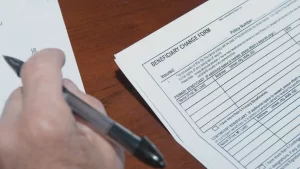Dallas Attorneys for Vehicles and Equipment in Estate Planning

Most people acquire vehicles and equipment throughout their lifetime, and you may wonder what happens to these items upon your death. A comprehensive estate plan can help you transfer what could be some of your most valuable assets to your chosen beneficiaries.
The Dallas estate planning attorneys of Staubus, Blankenship, Legere and Walker PLLC have experience helping clients get their estate planning wishes on paper. Using our years of experience in estate and trust law, we can help you ensure that your vehicles and equipment go to the right people after your passing. To discuss your options and get your questions answered, contact us online for a consultation or call us at (214) 833-0100.
What Is Estate Planning and Why Is It Necessary?
An estate plan is a comprehensive legal plan that outlines your wishes regarding the distribution of your assets. An estate plan is necessary for a variety of reasons, including:
- More control over the distributions of your assets
- Minimization of taxes and other costs associated with the transfer of assets
If you want to dictate how your vehicles and equipment are transferred upon your passing, it is essential that you create an estate plan. Without an estate plan, your assets will be passed to your surviving family according to the rules established by Texas law, which may not be the result you intended.
Transferring Vehicles and Equipment with Beneficiary Designation Form
One way to transfer vehicles and equipment is through a beneficiary designation for motor vehicle form. This form allows vehicle owners to designate who they want to receive their vehicle upon their death. The beneficiary designation form is usually used for assets such as cars, boats, and recreational vehicles still in your name at your death. For example, the beneficiary designation form will no longer be valid if you transferred the vehicle before passing.
To complete this form, you will need to provide the following:
- Your name
- The name of your beneficiary
- The make and model of your vehicle
- The vehicle identification number (VIN)
It is important to note that this form can only be used for certain types of vehicles and equipment. Additionally, if you own multiple vehicles or pieces of equipment, you must complete a separate beneficiary designation form for each asset.
The beneficiary designation form for vehicles and equipment will transfer the identified vehicle or piece of equipment upon your death to the named beneficiary if they survive you by 120 hours and they submit a title application submitted within at least 180 days.
Transferring Vehicles and Equipment in a Will
Another method for transferring vehicles and equipment is through a will. A will is a legal document that outlines how your assets will be distributed after your death.
You should include specific instructions for each asset to transfer your vehicles and equipment in a will. This should include identifying the assets, specifying who will receive them, and any conditions for receiving them. For example, you can specify that your vintage vehicle should go to your grandson only if he completes his college education.
While wills are a common way to transfer assets, they can be complex. For example, if your will is contested, the transfer of your assets could be delayed or denied. Additionally, your will is subject to probate, which can be a time-consuming and expensive process. Therefore, a will may not be your best option if you want a car to transfer immediately upon your death.
Transferring Vehicles and Equipment in a Trust
A trust is another method for transferring vehicles and equipment in Texas. A trust is a legal arrangement in which a trustee holds assets on your beneficiary’s behalf. Trusts can be used to avoid probate and give you greater control over the timing of the distribution of your assets.
To transfer a vehicle or equipment to a trust, you must create a trust, place the vehicle and equipment in the trust by transferring title to the trust, and outline how the property should be distributed. Additionally, the trust will identify the trustee who will be responsible for managing the assets. This person will handle the transfer of the vehicles and equipment to your named beneficiaries.
What Happens if I Don’t Name Who Gets the Vehicle or Equipment?
How your assets are distributed depends on whether you have an estate plan. In a will, if you fail to designate a beneficiary for a specific item, it becomes part of your residuary estate. Therefore, if you fail to specify to whom the vehicle or equipment should go, it will go to whoever gets your residuary estate.
On the other hand, if you do not have a will, trust, or beneficiary designation form, your assets, including vehicles and equipment, will be distributed under Texas intestacy laws. Under these laws, your assets will be distributed as follows:
- To your surviving spouse, if you either have no children or only have children with that surviving spouse.
- To your surviving spouse and children, if you have children with someone other than your surviving spouse.
- To your children, if you have no surviving spouse.
- To your parents, if you have no surviving spouse or children.
- To your siblings, if you have no surviving spouse, parents, or children.
Will My Beneficiaries Owe Taxes?
 When transferring vehicles and equipment in Texas, your beneficiary may owe taxes. Whether they owe taxes depends on what they do with their inherited vehicle or equipment and what other assets they received from you.
When transferring vehicles and equipment in Texas, your beneficiary may owe taxes. Whether they owe taxes depends on what they do with their inherited vehicle or equipment and what other assets they received from you.
In Texas, there is no inheritance or capital gains tax. However, if the beneficiary sells the vehicle or equipment, they may owe federal capital gains tax. Additionally, when your heir sells or transfers vehicles under specific conditions, they must pay motor vehicle use or gift tax.
Contact Staubus, Blankenship, Legere and Walker PLLC for a Consultation
The estate planning attorneys of Staubus, Blankenship, Legere and Walker PLLC have over a century of combined experience in estate planning law. Using our experience, we can help you determine the best method for distributing your vehicles and equipment after your death.
The Dallas estate litigation lawyers of Staubus, Blankenship, Legere and Walker PLLC can write wills, set up trusts, and fill out beneficiary designations for motor vehicle forms on your behalf. To discuss your options and get started on your estate plan, contact us today at (214) 833-0100.




